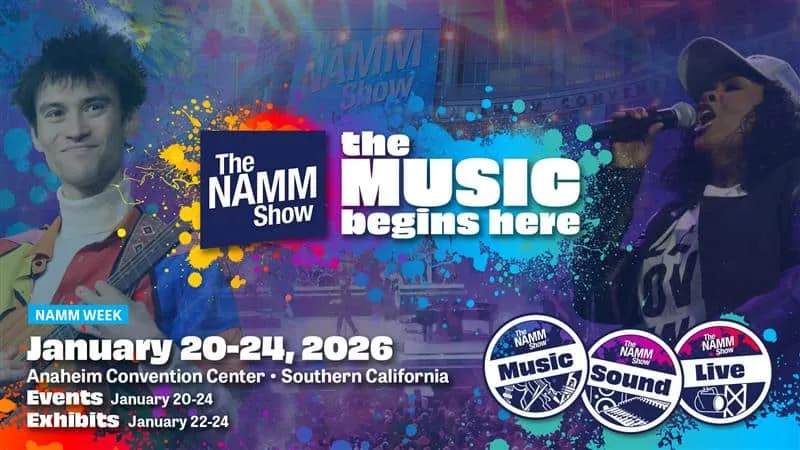Fame House's Hisham Dahud is in Ibiza, Spain helping put on the International Music Summit. IMS is a high level music industry conference attended by the global industry leaders in the dance music scene and signals the official launch of the Ibiza season.
The sixth International Music Summit kicked off Wednesday May 22nd, 2013 from the gorgeous Ibiza Gran Hotel on the island of Ibiza, Spain. The vibe was electric, as the sold out event drew in people from all parts of the dance music space from around the globe including artists, producers, managers, publishers, digital agencies, bloggers, lawyers, club owners, and more.
DAY 3 VIDEO RECAP
Jean Michel Jarre Interviewed by Ben Turner (IMS Partner)
The third and final day of IMS 2013 began with the summit room being graced with the presence of legendary French composer and performer Jean Michel Jarre for a keynote interview with IMS partner Ben Turner. JMJ shed light on his time-tested approach to electronic music and his thoughts on today’s landscape.
"Electronic music isn't just a 'genre' – it's a new way of composing and writing music altogether," he said.
JMJ expressed previous frustration by people who may dismiss electronic music as not “real” music because of the lack of acoustic instrumentation.
"Any art form is not dependent on just the instruments you use, but the ideas and emotions that come from it," he said. "It's not the tools – it's the content. The music itself is like 3D without the glasses. It’s not the music that’s electronic, it’s the instruments."
JMJ then dove deeper into how electronic music differs itself from the rest by comparing it to another type of performance-based art form.
"Electronic music is close to the circus concept,” he said. “Every day and every night, it's something different."
Turner asked JMJ what his thoughts were on today’s DJs who continue to push the envelope on the biggest and best light shows to accompany their music: "Visuals are not just the background,” he said. “It has to be considered on the same level [of art] as the music itself."
On Daft Punk: "They're not making electronic anymore; more like disco using live instruments," he said.
Expressing slight concern on how thing’s have changed for music listeners, JMJ pointed out the irony of technology’s impact to sound. "The tools to record music have gotten much better, but the way it's heard by people has gotten worse (vinyl>CD>MP3),” he said.
Closing his thoughts on electronic music, he had a few choice and impactful words.
“As popular as electronic music is, it still has that underground kind of flavor – sort of like jazz."
Emmanuel De Buretel (Because Music) Interviewed by Ben Turner (IMS Partner)
Delivering a straightedge and honest interview, Emmanuel De Buretel from the massively successful Because Music imprint have his views on what’s going on today in electronic dance music.
“The major [labels] are dinosaurs, they're going to disappear,” he said. “They're not fast, they’re extremely slow. They can't survive.”
Looking ahead, De Buretel forecasted what he believes will be the choice method of music consumption: "Vinyl will continue to exist for a select few, but the future is streaming."
When asked by an audience member what advice he’d give to someone looking to start a record label, De Buretel replied blankly: “Don’t start it.”
Continuing on, “The advice I’d give to somebody who starts a music company [is] to be passionate. Even if you fail, go through your passion. Bring friends who have knowledge in finance and legal to advise you.”
Interestingly enough, De Buretel shared a viewpoint not normally heard before: “Don’t trust artists, it's their nature to kill you one day. A good way to have a close relationship with an artist is to take risks with them."
Wrapping up his approach to business: “I’m not really nice or friendly, but you can count on me.”
Question Time feat. Brett Robinson (Future Entertainment), Danny Whittle (IBZ Entertainment), Rob Star (Mulletover), Sasha, and Terry Weerasinghe (Native Instruments) Moderated by Gary Smith (Billboard)
Some of the topics that were up for debate included “Models & Bottles: How the Underground Seduced the World of VIP”, “Killing it in Ibiza: How do make your name on the Isle of Dance”, “Social Media Wars: Artists Killing Each Other Online”, “Insomniac's position against Headliners”, “Overcrowding of clubs: Steve Aoki”, “Thrown Off the Decks: DJ Shadow and a host of DJ-s thrown off the decks!”, and “Daft Punk: Rules Rewritten”.
Market Focus – Germany feat. Jens Thele (Kontor), Marcus Trojan (Weekend club), Monika Kruse, Ralf Kollmann (Mobilee), Tom Keil (Ultra Music Europe), and Tom Preuss (Artistalife) Moderated by Gary Smith (Midem)
In an in-depth look at the German market for electronic music, the panel seemed to agree that the most action resides in Berlin. However, getting major acts to fuel the market may be more difficult than one might imagine.
"In the end, there are only a handful of acts that can fill a 2,000 person venue," said Tom Preuss of Artistalife. “It’s difficult booking these people because of all the costs and fees associated with it in Germany.”
While a name like Resident Advisor seems so commonplace for dance music, Preuss points out that, "No one knows Resident Advisor in Germany, except for maybe Berlin."
While things may appear dismal for Germany, Monika Kruse points out her observation: "It's not that the [German] scene is small – the clubs are full!"
Digital Debate: Introduction by Oliver Luckett (The Audience), Andrzej Moyseowicz (Freemavens), Carter Laren (Mox), Mark Williamson (Spotify), Nikhil Shah (Mixcloud), and Seth Goldstein (DJ-Z). Moderated by Ted Cohen (TAG Strategic)
Shifting the focus to a key area in the worldwide rise of electronic music, Oliver Luckett of The Audience began this panel by demonstrating how the landscape has changed for musicians and social media; how fans desire to now more than ever to engage with musicians in an interactive way that also showcases their values through the social sphere.
Carter Laren of Mox.tv emphasized this notion further through a note about his company’s core audience.
“There is a whole world of people who will never step into a club, but who still love this music,” he said.
Other interesting tidbits surfaced, one notably from Spotify’s Mark Williamson.
“22 of the top 100 tracks on Spotify fall under electronic dance music," he said. This stat alone demonstrates not only the rise of electronic music through a massive platform like Spotify, but also the listening habbits among the genre’s fans.
Seth Goldstein of DJZ also shared a few observations through the building of his platform.
“People want less choice, not more,” he said. This point holds true when examining new platforms like Songza who offer users hand-guided and contextually tailored content.
Some final words for indies to up their digital game came from Oliver Lucket: "High concept, low fidelity, and great music videos.
Is the American Style of Doing Business Killing the Heart of Dance Music? Arash Shirazi (The Bullitt Agency), Ash Pournouri (At Night), David Waxman (Ultra Records), Maria May (CAA), and Shelly Finkel (SFX Entertainment) Moderator: Gary Smith (Midem)
In a highly anticipated conversation about the “invasion” of American entities into dance music culture, emotions ran high as many on the panel felt that indeed dance music is at risk by the mergers, acquisitions, and consolidations occurring in North America.
“We've been making money with my artists and booking them everywhere, and suddenly in the last five years, there's been a lot more interest in owning that music [in America],” said Maria May. "The new style of business is more about winning than it is caring."
When asked why America has “suddenly” embraced dance music, David Waxman pointed out something that many people often overlook.
“Electronic music has been going on in the United States, but the difference now is the power of the Internet,” he said, mentioning also the generational waves that seem to occur with the genre in the United States.
Naturally, Shelly Finkel of SFX Entertainment was in the hot seat a number of times (especially by audience members through Twitter) about his genuine desire to elevate the genre, or perhaps his desired interest to elevate he and his company’s bottom line. At one point, Finkel quotes legendary promoter Bill Graham on artists’ willingness to accept huge payouts: "It's not the money, it's the money.
The panel concluded with participants suggesting a new term to replace “EDM”.
“The people calling it ‘EDM’ now are likely the same people calling it ‘techno’ ten years ago,” David Waxman said. “EDM will come and go, but dance music will always stay."
Bob Lefsetz Summary of IMS 2013
Blogging king Bob Lefsetz summed it up perfectly:
“That's your responsibility. Not to put the money first, but to put the audience first. What is the price? What is the value? Are they respected? Do they feel included? So far, everybody here's been doing a great job, but we'll see what happens in the future.”
Sven Väth Interviewed by Ben Turner (IMS Partner)
In the final conversation of IMS 2013, IMS partner Ben Turner sat down with the incomparable Sven Väth for a look at how thing’s have changed in Ibiza and his take on the worldwide explosion of dance music.
On still going strong in 2013: "I'm still enjoying it so much – sharing my feelings with the crowd," he said. Väth has been known to play extremely long sets and when Turner asked him how long his longest one was, he replied “Something like 30 hours.”
When asked about the VIP culture, Väth recalled back to a day when there was no such thing as a VIP. “Ibiza was never about VIPs,” he said. The party is the dance floor, and my music is for the dance floor…VIPs – who is really important? They’re coming because they have money.”
On the upcoming Ibiza season, with more and more DJs having their own nights and clubs expanding: "Honestly, I feel it's too much,” he said. “We're doing it because we want to have fun. We don't want to destroy ourselves."
When asked how he was going about technology these days, Väth simply replied: “Two decks and a mixer,” to an applauding crowd.
“Improvisation is my biggest art form,” he continued. “I don't care [about not spinning digitally], because I have so many exclusive tracks that are just released on vinyl. I’m OK with that."
Väth closed out the IMS Grand Finale at Dat Villa later that night, an appropriate ending to an amazing three days in Ibiza.
And he brought his usual crates of vinyls along with him…
MORE:
- DAY 1 RECAP: International Music Summit Ibiza 2013: Day 1 [EVENT RECAP & VIDEO]
- DAY 2 RECAP: International Music Summit Ibiza 2013: Day 2 [EVENT RECAP & VIDEO]
—
Hisham Dahud is the Digital Strategy Director of Fame House and an independent musician. Follow him on Twitter: @HishamDahud
Related articles




![Folk Alliance Awards 2026 Winners Named [Full List]](/content/images/size/w1304/format/webp/2026/01/Folk-Alliance-Awards-2026.png)

